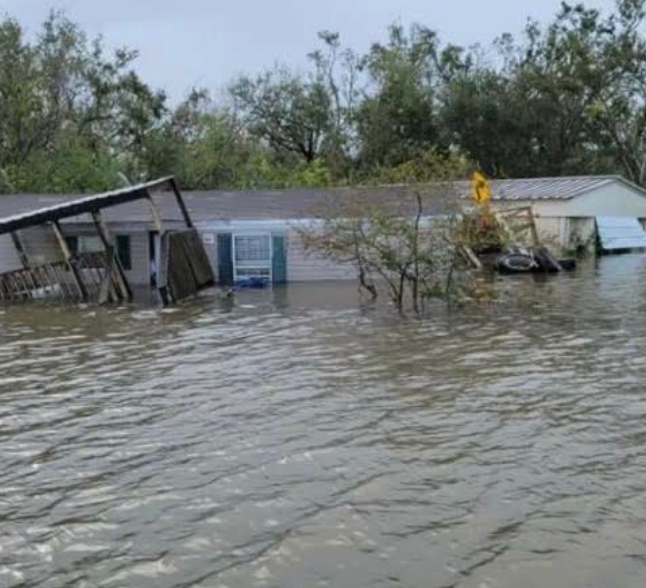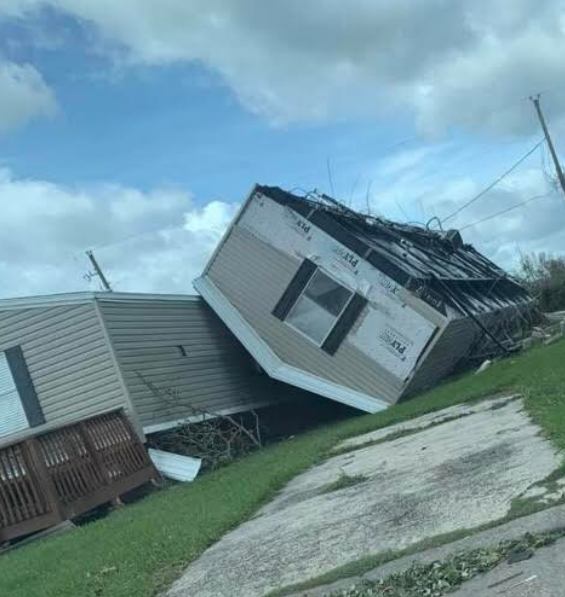
- Details
- By Levi Rickert
HOUMA, La. — The United Houma Nation, based in Golden Meadow, La., reported major devastation suffered during Hurricane Ida on Sunday that included deaths and multiple injuries.
“Our tribe has suffered deaths and injuries. We just don’t have a count yet,” United Houma Nation Tribal Chief August Creppel said to Native News Online late Monday night.
Want more Native News? Get the free daily newsletter today.
“I am very heartbroken as chief of the United Houma Nation to see the pain my people are going through and to see how their lives have changed in just a few hours, and there was nothing I could have done to change it,” Creppel said.
Hurricane Ida, a Category 4 hurricane, hit land on Sunday with winds as high as 150-miles-per-hour. It is now being called one of the most powerful hurricanes to ever hit the U.S. mainland. For much of Sunday afternoon, Houma was in the eye of the hurricane.

On Monday, United Houma Nation tribal officials assessed the damage from the hurricane. Photographs taken of the devastation show houses that were damaged from flooding and buildings with roofs taken off. One mobile home was turned on its side.
According to Creppel, the United Houma Nation has a population of 19,000 with its tribal citizens spread over six parishes that are located about 60 miles southwest of New Orleans. All six parishes were hit by the hurricane.
Many of the tribal citizens evacuated the area and awaited news about when it would be safe to return home. In some cases, it may be days before it will be declared safe to return home. Over a million residences and businesses were without electrical power, including all of the city of New Orleans.
Editor’s Note: This is a developing story. Native News Online will update our readers when more information becomes available.
More Stories Like This
Native News Weekly (August 25, 2024): D.C. BriefsUS Presidents in Their Own Words Concerning American Indians
Native News Weekly (December 14, 2025): D.C. Briefs
Wounded Knee Massacre Site Protection Bill Passes Congress
Two Murdered on Colville Indian Reservation
Help us defend tribal sovereignty.
At Native News Online, our mission is rooted in telling the stories that strengthen sovereignty and uplift Indigenous voices — not just at year’s end, but every single day.
Because of your generosity last year, we were able to keep our reporters on the ground in tribal communities, at national gatherings and in the halls of Congress — covering the issues that matter most to Indian Country: sovereignty, culture, education, health and economic opportunity.
That support sustained us through a tough year in 2025. Now, as we look to the year ahead, we need your help right now to ensure warrior journalism remains strong — reporting that defends tribal sovereignty, amplifies Native truth, and holds power accountable.
 The stakes couldn't be higher. Your support keeps Native voices heard, Native stories told and Native sovereignty defended.
The stakes couldn't be higher. Your support keeps Native voices heard, Native stories told and Native sovereignty defended.
Stand with Warrior Journalism today.
Levi Rickert (Potawatomi), Editor & Publisher

